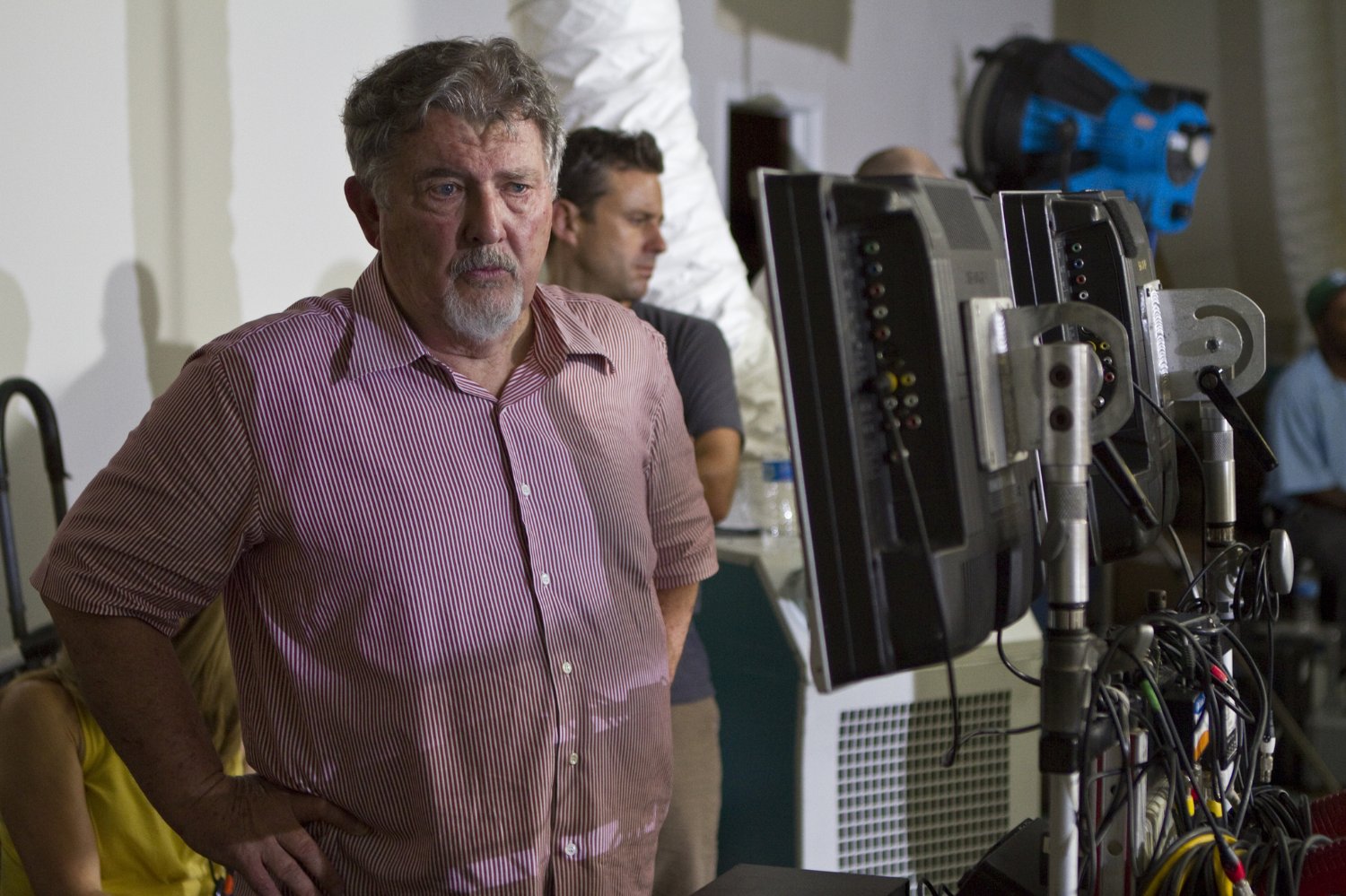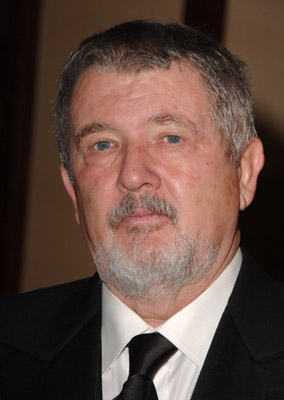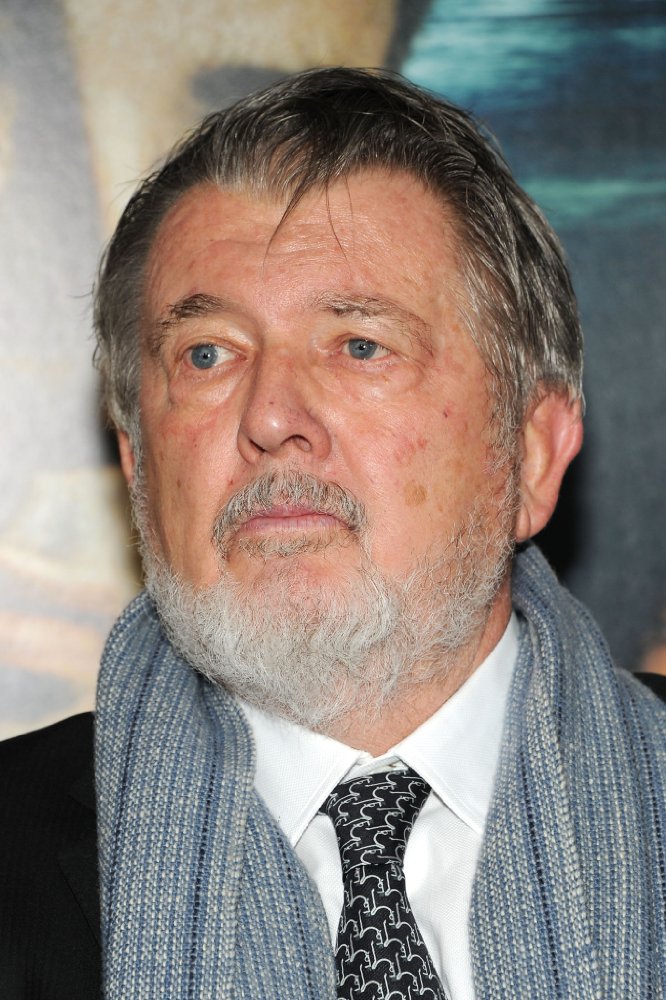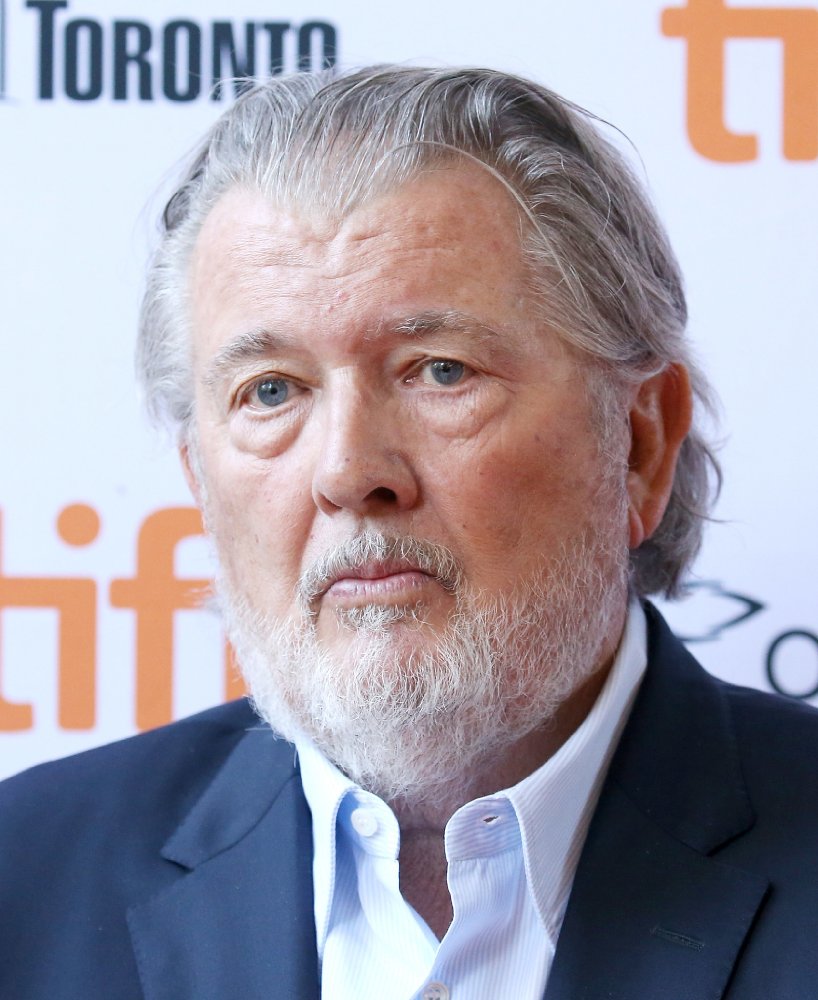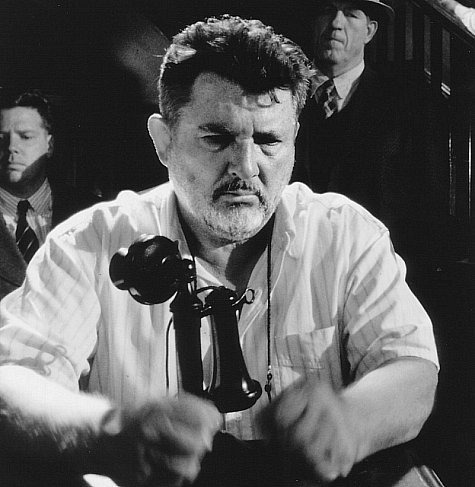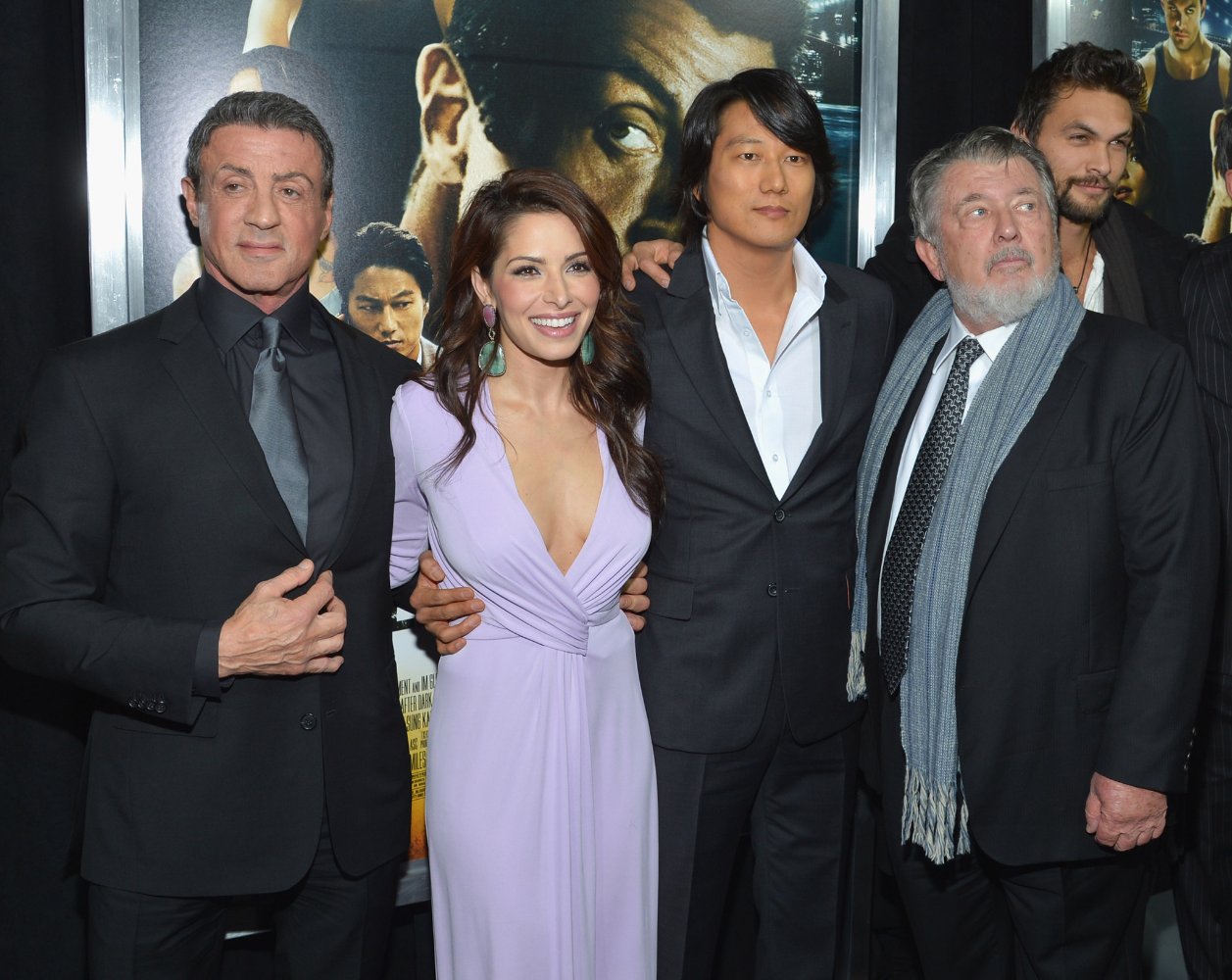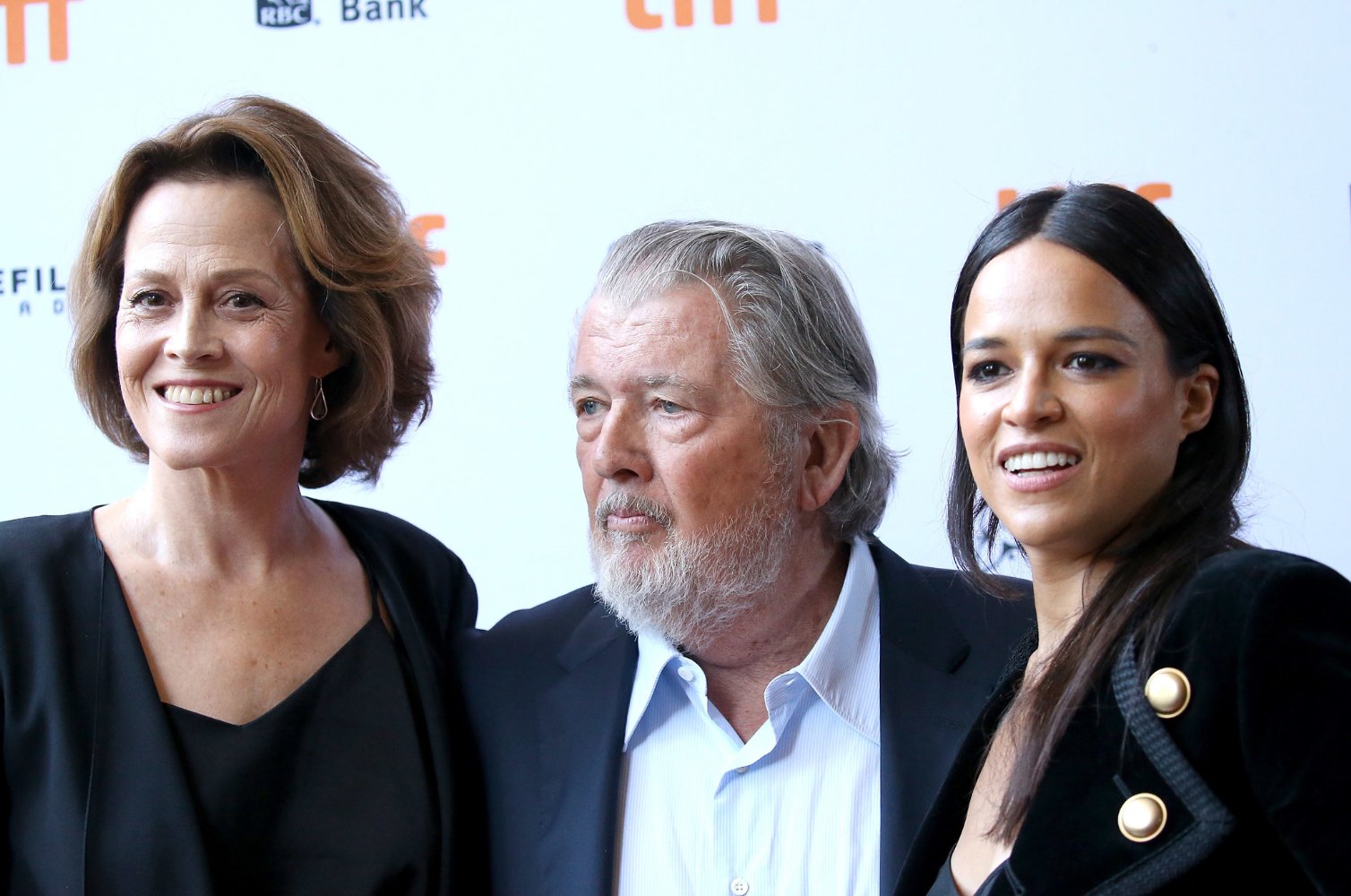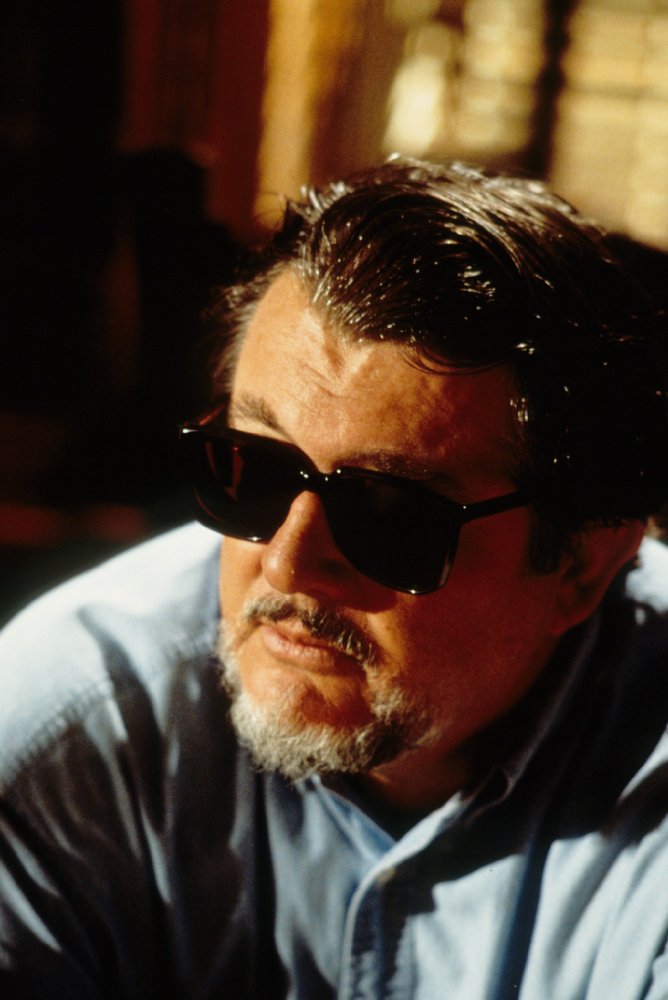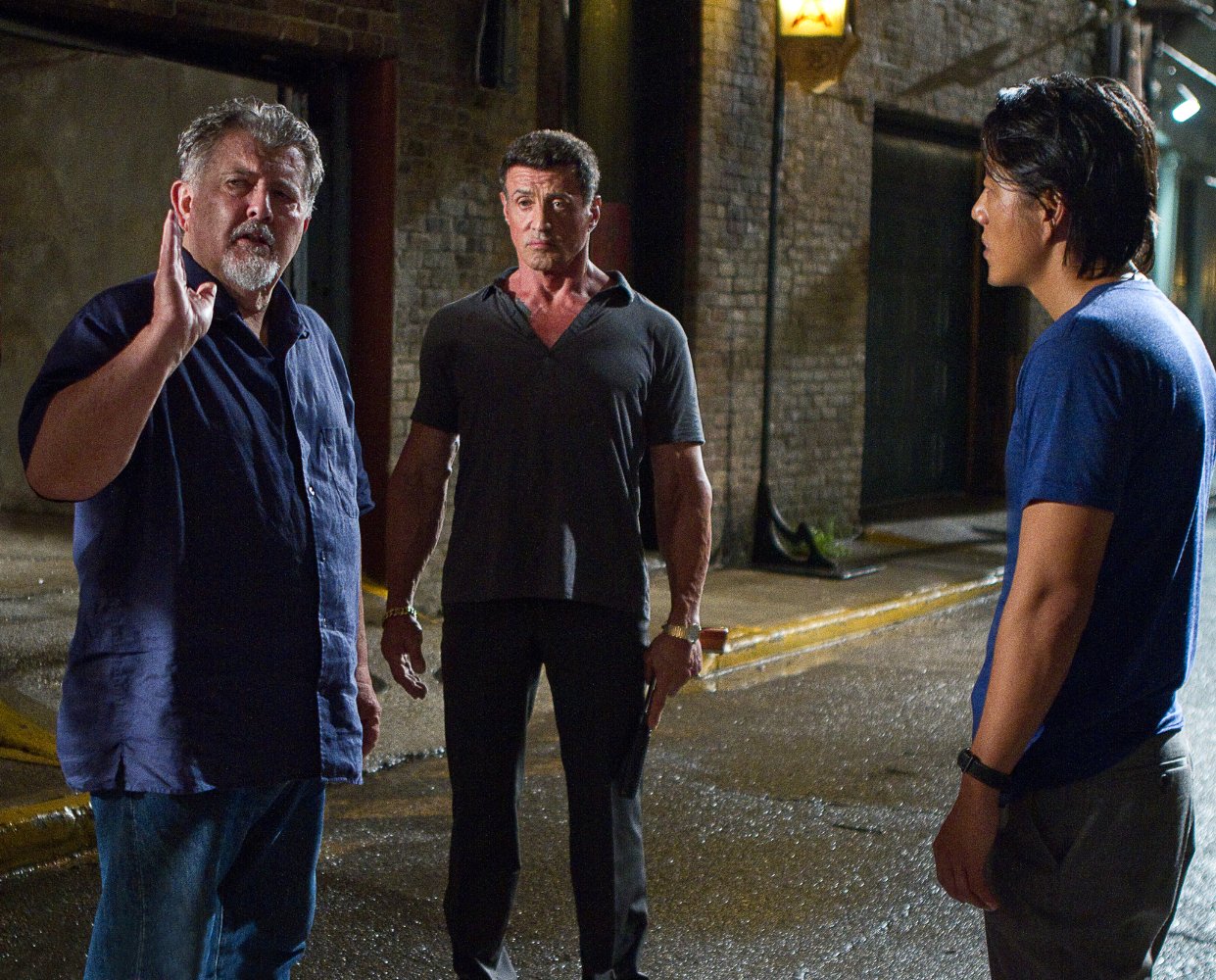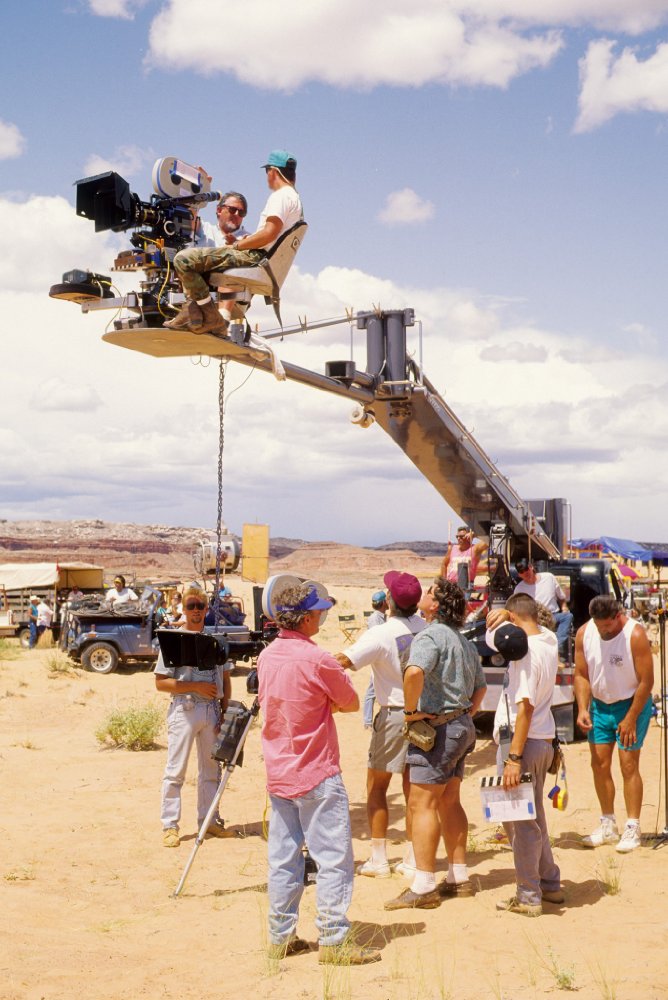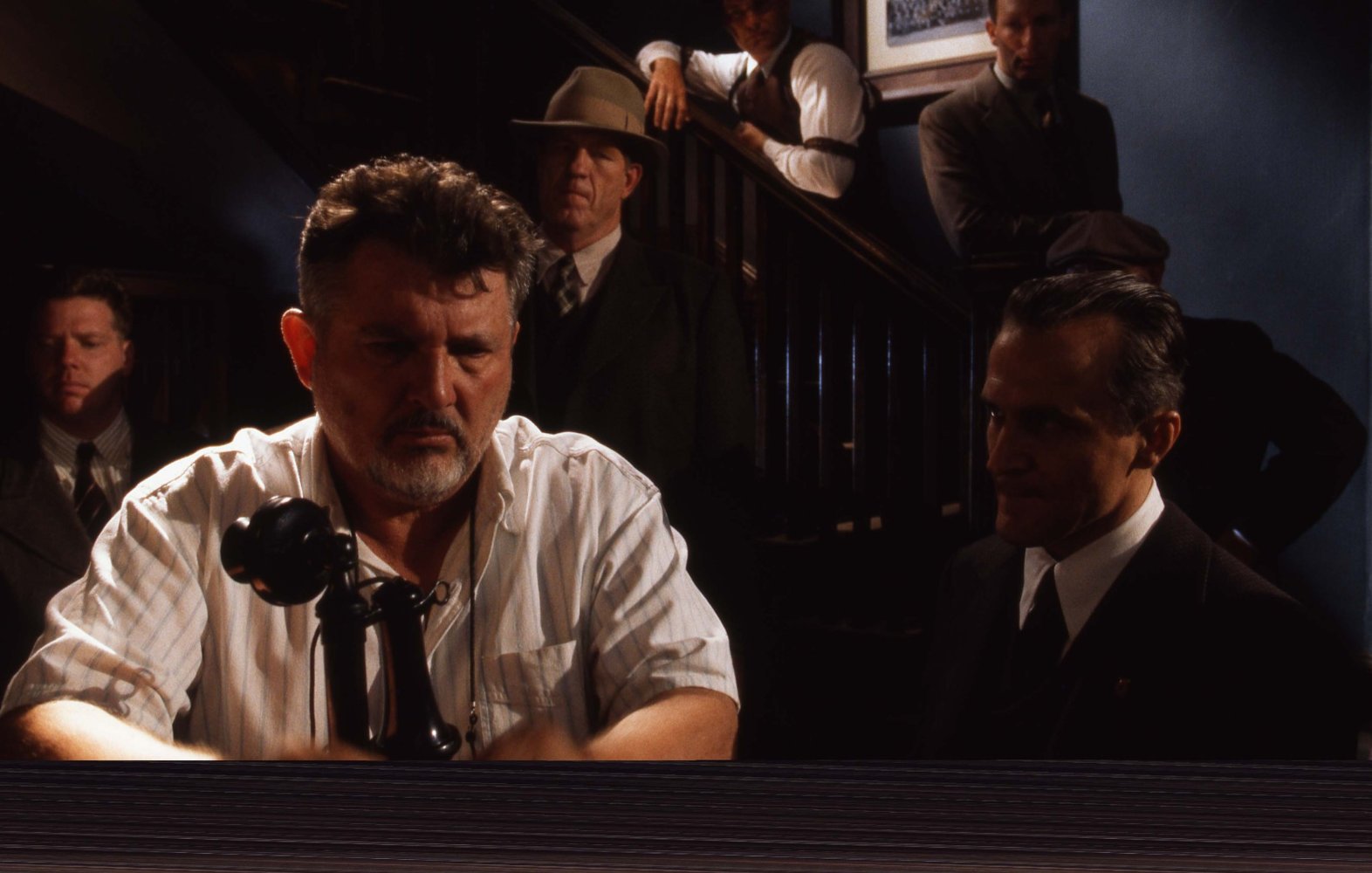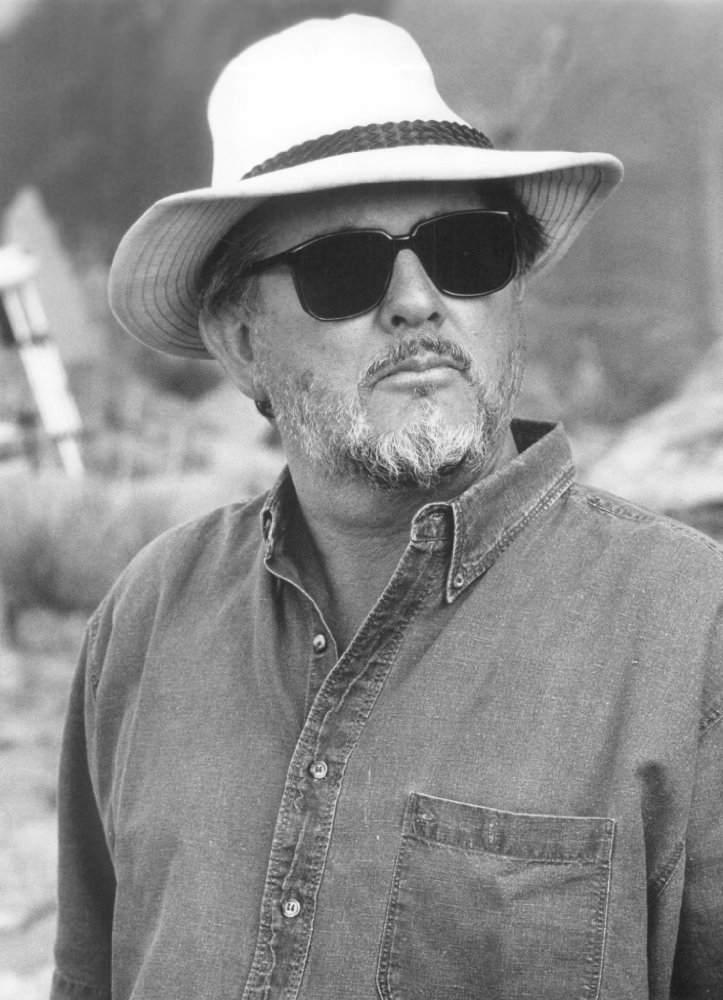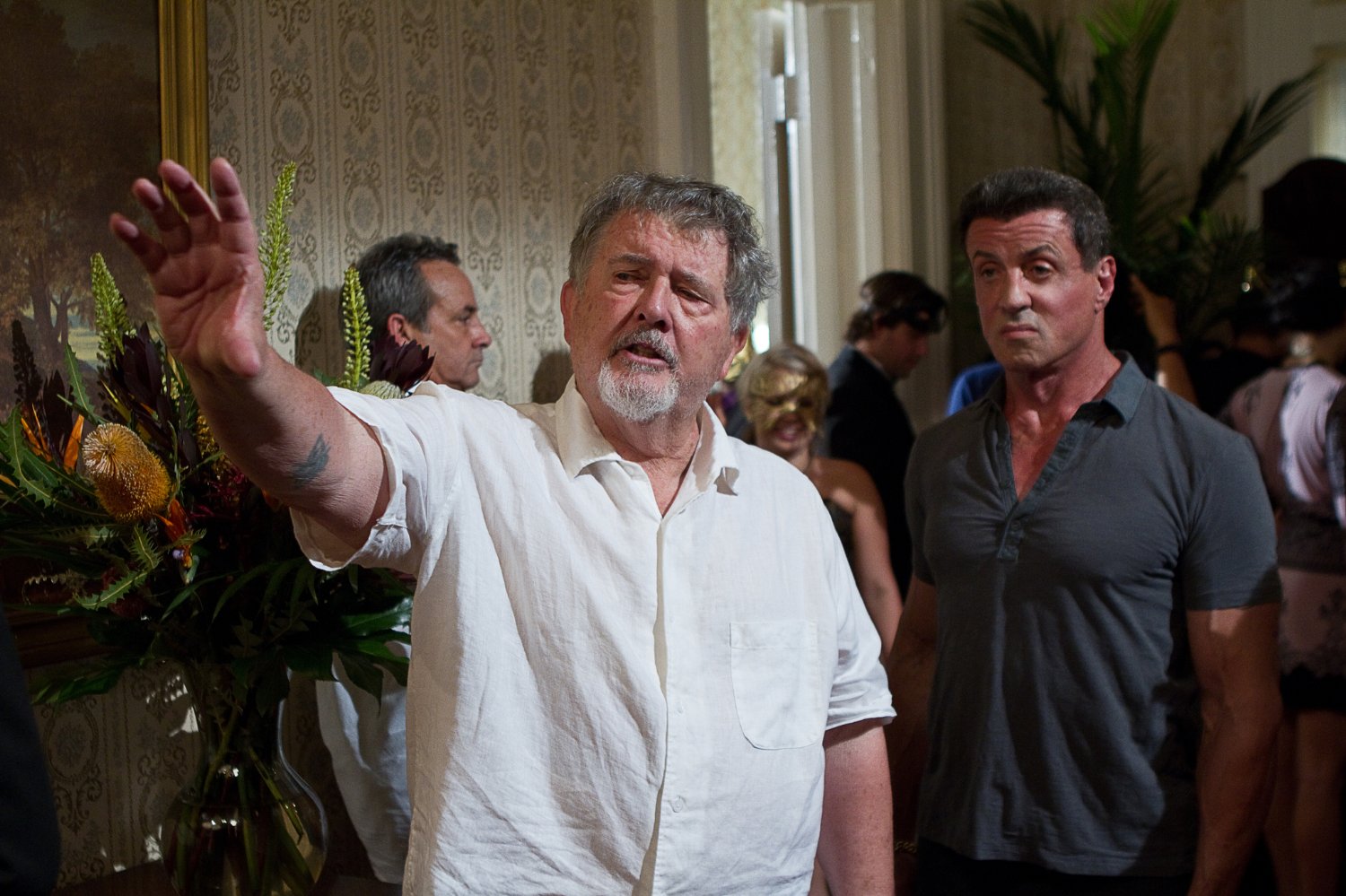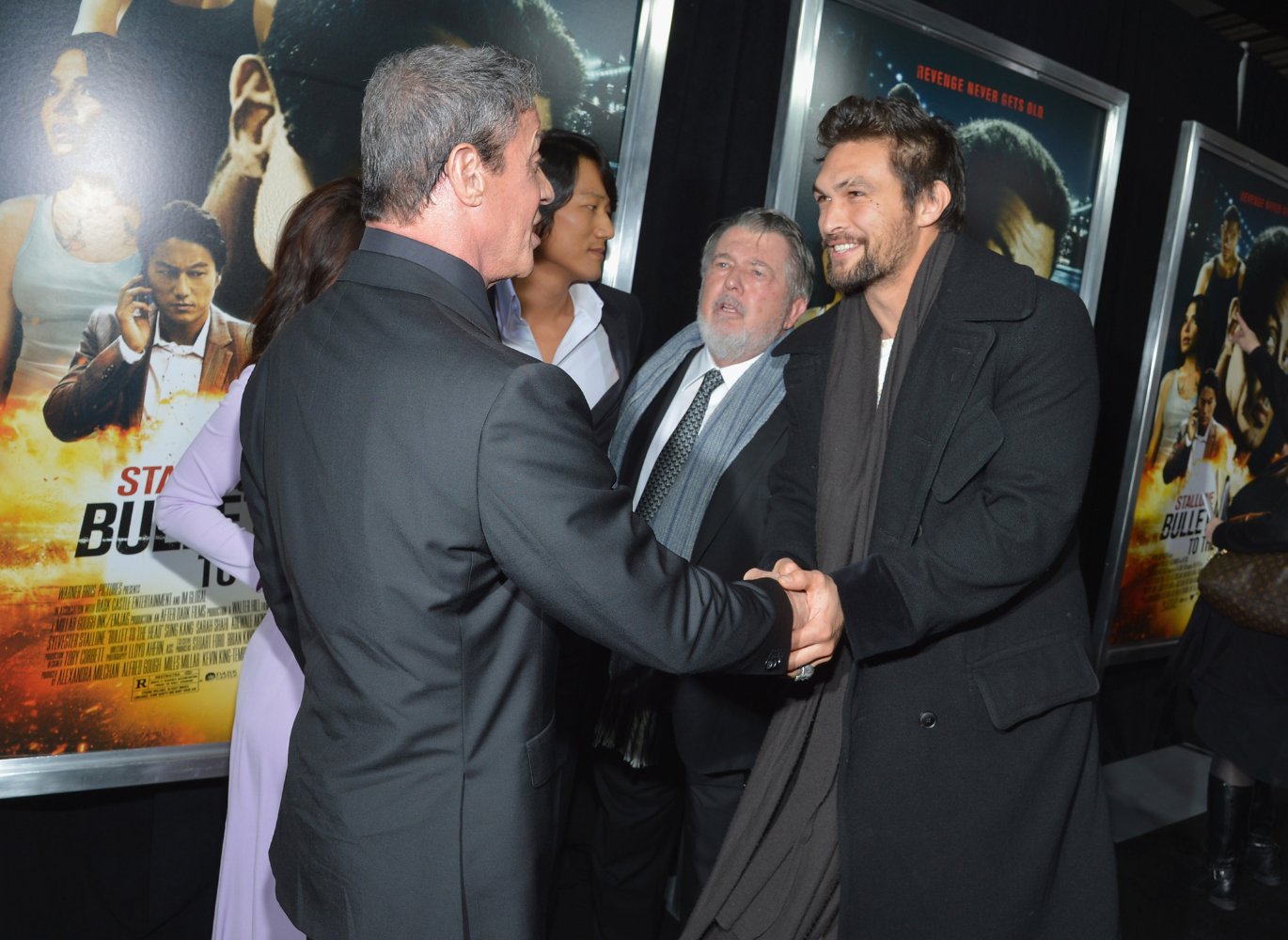
Walter Hill
Birthday: 10 January 1940, Long Beach, California, USA
Birth Name: Walter Wesley Hill Jr.
Hill was born in Long Beach, California and educated at Mexico City College and Michigan State University. He worked in oil drilling and construction in the 60s before becoming a 2nd assistant directo ...Show More
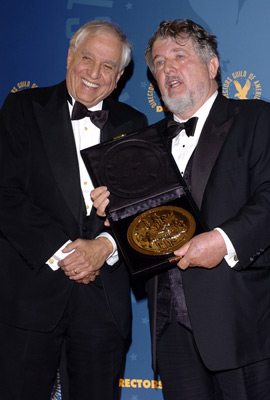
(On the main characters in Bullet to the Head (2012)) We're not breaking new ground. We're trying to Show more
(On the main characters in Bullet to the Head (2012)) We're not breaking new ground. We're trying to be entertaining within a format that's familiar. There's a kind of ice skating that goes on where you must let the audience know that you're not taking yourself too seriously. But at the same time, the jokes are funny but the bullets are real. The jeopardy has to be real. When it gets outlandish, there needs to be no drift into parody - self-parody, maybe inevitable for old directors. Hide
(On The MacKintosh Man (1973)) I was being sued by Warner Bros. They signed me for a screenplay, I w Show more
(On The MacKintosh Man (1973)) I was being sued by Warner Bros. They signed me for a screenplay, I was mad because they sold Hickey & Boggs to United Artists for what seemed to me to be a great deal of money and instead of making it themselves. Also no further remuneration to me... I decided to forget about the script I owed them on general principle and a couple years had gone by, year and half. There was a compromise. My agent said they are sending you a box of books. Pick one out, write a script, get it over with. That's exactly what happened... I wrote a quick script which I was not particularly enamored with myself. Much to my shock and surprise I had taken a trip to northern California and my agent tracked me down. I called him, he said you better get back here, Paul Newman is doing your film, I think John Huston is directing it. I thought, Jesus Christ. One would like to think you are mistaken about the wonders of your work, but I didn't believe it. That part turned out to be true. I went over to work on the script with Huston. He wasn't very well, I ended up with sole screen credit, but one of the problems is the screen credit is misleading very often. I wrote 90% of the first half, various people wrote the rest. I didn't think it was a very good film. Hide
(On Southern Comfort (1981)) It is clearly in a sense the kind of fault of our guys for getting into Show more
(On Southern Comfort (1981)) It is clearly in a sense the kind of fault of our guys for getting into this situation. In the collective group, there are individuals who are not as highly evolved as the others. And the answers to the dilemma, I mean both nature's noblemen, those of higher character through some innate quality. And you have people that operate on a sliding scale downward to the brute level in their response to the situation that they have gotten themselves into. All of which I think is a kind of, war is terrible. It's a wartime situation. With mixed results and accompanying paranoia even by those who are the best and the brightest of the bunch... None of us are quite as good or bad as we construct them. Southern Comfort (1981) is trying not to be an easy drama. Hide
(On Trespass (1992)) It is an adventure story that harkens back to a Jack London tradition. And what Show more
(On Trespass (1992)) It is an adventure story that harkens back to a Jack London tradition. And what makes that striking, is that it is so much more real than what we presume action adventure movies to be-what they have evolved to be in the last 20 years. When I was a kid, they were all about very real people in tough circumstances, now the action movie is half science fiction movie. This movie is very much a throwback in that sense-with the permanently strained relations between blacks and whites and browns and orientals in our ghettos, our inner cities... But... just because the films intentions are not political, doesn't mean it's not political. Movies take on their own life. This is not a movie about racial confrontation in the sense that the confrontation had nothing to do with race... Inevitably, white and black attitudes spill into the movie because of the attempt to create some kind of social reality out of the situation. Hide
The real truth is these movies are all foreign driven. They need domestic releases. If the economics Show more
The real truth is these movies are all foreign driven. They need domestic releases. If the economics are right, people feel like they can be commercial in a reasonable way domestically. But they're really foreign driven. This movie would not exist without expectation of the foreign audience being vastly greater than the domestic. Hide
(On Red Heat (1988)) I didn't want to do sci-fi and it's tough to use Arnold credibly in an American Show more
(On Red Heat (1988)) I didn't want to do sci-fi and it's tough to use Arnold credibly in an American context with his accent. I thought it would be interesting if he could play a Russian cop in the US. I wanted to do a traditional John Wayne/Clint Eastwood larger-than-life movie. You then ask the question: Will the American audience accept an unapologetic Soviet hero, someone who will not defect at the end of the movie? Hide
[on working with Charles Bronson on Hard Times (1975)] Well, Charlie does things in terms of perform Show more
[on working with Charles Bronson on Hard Times (1975)] Well, Charlie does things in terms of performance that are hard for a lot of other people to comprehend as being part of an actor's tool, and that is being visually interesting. There is a great poetry in Charlie's face. With just a look, he can suggest moods that are quite interesting. He's always on time, he always knows his lines, and he never misses a mark. Hide
(On The Warriors (1979)) "I wanted to take it into a fantasy element, but at the same time add some Show more
(On The Warriors (1979)) "I wanted to take it into a fantasy element, but at the same time add some contemporary flash. Those were some of the hard ideas we had to get the studio to understand. But we did not get along very well with our parent company. After the movie came out and it did well, everybody was sort of friends. But up until then there was a lot of misunderstanding. They thought it was going to be Saturday Night Fever (1977) or something". Hide
(On The Getaway (1972)) I thought of the films I wrote, I thought it was far and away the best one, Show more
(On The Getaway (1972)) I thought of the films I wrote, I thought it was far and away the best one, and most interesting. I thought Sam did a few things while shooting that were terrific. When they jump on the bus after they buy the gun, I just had them take the bus out of town. Sam had the bus circle around and come back through. That heightened the tension... I thought the stuff with the veterinarian got too broad and too sadistic for the rest of the film. But again I thought it was good film. It was not reviewed very well, but a huge hit. Biggest hit Sam ever had.... He would always say we did this one for the money which is one of those kind of half truths... He was well paid and the movie made a lot of money and the fact it was about the only film where his points meant anything; he took a fair amount of money out, too. After all the disappointment and heartbreak of all these films he had never gotten any reward or been well paid, meant a lot to him. Hide
(On his childhood asthma) What it did for me, despite the discomfort, it made you comfortable being Show more
(On his childhood asthma) What it did for me, despite the discomfort, it made you comfortable being alone with yourself. You weren't as surrounded by your peers as everybody else your age was. You learn to amuse yourself. In my case it meant tremendous amount of reading at an early age... I read, listened to radio... I became utterly besotted with daytime serials. In the later afternoon, when kids were meant to be home, there were more adventures... it enabled me to live in an imaginary world where one is comfortable with abstract ideas, dominated by stories, narrative, and characters. Hide
(On Trespass (1992)) I don't think the script changed all that much, to tell you the truth. Although Show more
(On Trespass (1992)) I don't think the script changed all that much, to tell you the truth. Although there's certainly no scene in the movie that wasn't rewritten many times. The script evolved because of certain location problems and we worked out a new ending. The only thing that is significantly different from the script is that the film gives a lot more screen time to King James and his gang and the ending is quite a bit different from the original. Hide
I always say this about 48 Hrs. (1982).: I never claim it's the best movie or anything like that, bu Show more
I always say this about 48 Hrs. (1982).: I never claim it's the best movie or anything like that, but it did turn out to be a very imitated film. Hide
(On Undisputed (2002)) "Some say Hollywood movies that are made about boxing are just metaphors for Show more
(On Undisputed (2002)) "Some say Hollywood movies that are made about boxing are just metaphors for other things, I think I've made one that's actually about boxing and not a metaphor." Hide
We're not breaking new ground. We're trying to be entertaining within a format that's familiar. Ther Show more
We're not breaking new ground. We're trying to be entertaining within a format that's familiar. There's a kind of ice skating that goes on where you must let the audience know that you're not taking yourself too seriously. But at the same time, the jokes are funny but the bullets are real. The jeopardy has to be real. When it gets outlandish, there needs to be no drift into parody - self-parody, maybe inevitable for old directors. Hide
I think in casual conversation I would have told anybody I wanted to direct. At the same time I knew Show more
I think in casual conversation I would have told anybody I wanted to direct. At the same time I knew Hollywood was a closed off place... It was much harder to get in. To be an older director was a very positive thing. It meant you had survived, knew your way, could make things and make them meet your economic responsibilities. It was always paramount in studio minds, especially in those days... If I was going to direct I was going to write my way in. No TV, no play, I was simply somebody who said I have a sensibility. I think I can do this. based on nothing other than my scripts basically. Hide
(On Southern Comfort (1981) "No studio wanted to make it, but an independent guy showed up who had a Show more
(On Southern Comfort (1981) "No studio wanted to make it, but an independent guy showed up who had a relationship with Fox. Liked it, said he would finance it." Hide
I had a hard time finishing scripts. My problem was finding certain character narrative concerns. On Show more
I had a hard time finishing scripts. My problem was finding certain character narrative concerns. Once I finished scripts, I almost instantly made a living. Not only made a living, but got them made. From the time I finished them to the time they were getting made, making progress on the trail, that all happened pretty quickly. Hide
(On Bruce Willis) "I liked working with him. It was impersonal. Classic, 'I know what you mean. You Show more
(On Bruce Willis) "I liked working with him. It was impersonal. Classic, 'I know what you mean. You want me to be a Bogart, Mitchum kind of guy' and I said 'Exactly. Let it happen.' He then took that and gave what I thought was a very good performance. I always sensed there was a kind of core resentment that Bruce felt he should be more appreciated for his talents. At the same time I think there is a limitation, that he does certain things better than others, and he hasn't always chosen so wisely." Hide
(On shooting Trespass (1992) through videotape) I simply saw it as a visual opportunity to play a lo Show more
(On shooting Trespass (1992) through videotape) I simply saw it as a visual opportunity to play a lot of the movie through a viewfinder. I thought it might get you inside the gang better... I wanted everything to be rough around the edge. We shot most of the movie hand held... I wanted it to be herky-jerky. We Dutched a lot of the angles, especially as the story unfolds because the story gets crazier and crazier. We went from a less elegant-the early parts of the movie, there are no hand helds at all-but as the story gets more nervous and crazy, we go more and more to a hand held thing until, finally, the end of the movie is all entirely hand held. Hide
(On Southern Comfort (1981)) I was very proud of the actors in it. It was a tough movie to make, and Show more
(On Southern Comfort (1981)) I was very proud of the actors in it. It was a tough movie to make, and they put up with a lot. They would probably tell you they put up with a lot from me. [Laughs.] But they really did it without complaint. And I just thought I was very fortunate to have the cast that I had. Jesus, it was a hard movie to make... I think when you see the movie you can see that this one wasn't nightclubs in Vegas. But it was just very hard locations to get in there. Very hard to shoot. I remember so many times we'd only have a few minutes to set the camera because the bottom of the swamp would give way. And so, for your camera positions, you had to stage and shoot very quickly in many cases. It just was hard, and the weather was miserable. However, I will say this: If you choose to go make a movie in a swamp in the middle of winter, you probably deserve what you get. [Laughs.] Hide
(On Bullet to the Head (2012)) When Sly and I first talked about doing it, I told him I thought if w Show more
(On Bullet to the Head (2012)) When Sly and I first talked about doing it, I told him I thought if we did it as an homage to '70s or '80s action films - and if he got a haircut and if we played it not at some nuclear level and left a little room for humor - everything would probably work out. I mean, this is one of those plots... You know, in terms of the real world, they're fairly preposterous. But that's OK. That's part of the given. As long as you don't break the rules and contradict yourself within that sensibility, people go for the ride.... ly and I have known each other for probably 35 years. I have always been a great admirer of Sly's. Most directors love movie stars because they're such fabulous tools to tell stories with. Sly is an actor but he's a star and he's been a star for a very long time. When he sent me this, there was a feeling on both our parts, that if this was ever going to happen - us working together - we better sit down and do it. Time is moving on. Hide
I am very happy about it. I mean no film is beyond criticism, but I think we've made a very modest m Show more
I am very happy about it. I mean no film is beyond criticism, but I think we've made a very modest movie. Heck, we did it in 39 days, it cost $20 million dollars, which is very cheap for Hollywood standards, and tells a good story. I guess it's the literary equivalent of a short story, Hide
(On filming Streets of Fire (1984)) I think I thought I could handle things. Didn't know how to shoo Show more
(On filming Streets of Fire (1984)) I think I thought I could handle things. Didn't know how to shoot music. Music had been important in my films, it was usually post production. This was tough stuff to shoot. I already had a great respect for people like Minnelli. I just couldn't seem to work it out without just putting up multiple cameras and shooting an awful lot of film... I later realized or talked to people about this and MGM in the old days everybody was on contract and they would rehearse for weeks. We don't get that. We would stage it and shoot it. We got the songs a lot of times just a few days before we shoot. We only get the final song. The structural advantage of the old studio system we didn't have. It made a very inefficient shoot. I don't think there was any other way to do it given the circumstances. Hide
(On Extreme Prejudice (1987)) I wanted someone who was representative of the tradition of the Americ Show more
(On Extreme Prejudice (1987)) I wanted someone who was representative of the tradition of the American West -- taciturn, stoical, enduring. Someone who carried a lot of pain with him. I told Nick, 'The kind of thing I'm talking about is Cooperesque.' I had him look at a lot of Gary Cooper films. Hide
(On Trespass (1992)) "I wanted to make a down-and-dirty thriller. I wanted to shoot it in a fast, ha Show more
(On Trespass (1992)) "I wanted to make a down-and-dirty thriller. I wanted to shoot it in a fast, hard style. I wanted to work off the cuff, making it all happen right there." Hide
(On Johnny Handsome (1989)) No studio wanted to make it, and I didn't think any actor would be willi Show more
(On Johnny Handsome (1989)) No studio wanted to make it, and I didn't think any actor would be willing to play it. I wasn't sure the audience would buy the gimmick of the plastic surgery. It's an old-fashioned melodramatic device. Then about a year ago, I decided to do it. First, I figured that Hollywood is based on melodrama anyway and, second, I thought up a way to present the story in a way that resisted histrionics. More importantly, I found an actor who could play Johnny and not make it risible. Someone who understood the pitfalls of the thing. The main thing is that motion pictures have conditioned us to expect psychological realism. This is a drama in a different category. It's about moral choices... I knew I was on very thin ice. If you let any histrionics in, it will fall apart. You have to trust the drama of the whole rather than an individual scene. And that's antithetical to most actors. They want to know, 'Where's my big moment? When do I get to cry and scream?' Mickey understood that. Hide
(On Geronimo: An American Legend (1993)) It's not about Geronimo. It should have been called The Ger Show more
(On Geronimo: An American Legend (1993)) It's not about Geronimo. It should have been called The Geronimo War... It's as much about the Army as it is Geronimo. That came out of my reading of historical accounts, and realizing that so much of what we think we know about the Indian campaigns is wrong. The Army is generally depicted as the enemy of the Apache, but in many cases, the people who were most sympathetic to their plight were those soldiers. Hide
I very purposely -- more and more so every time I do a script -- give characters no back story. The Show more
I very purposely -- more and more so every time I do a script -- give characters no back story. The way you find out about these characters is by watching what they do, the way they react to stress, the way they react to situations and confrontations. In that way, character is revealed through drama rather than being explained through dialogue. Hide
(On The Warriors (1979)) What made it a success with young people... is that for the first time some Show more
(On The Warriors (1979)) What made it a success with young people... is that for the first time somebody made a film within Hollywood, big distribution, that took the gang situation and did not present it as a social problem. Presented them as a neutral or positive aspect of their lives. As soon as you said in the old days gang movies it was how do we cure the pestilence and how do we fix the social waste. We want to take these kids, make sure they go to college... This was just a movie that conceptually was different. Accepted the idea of the gang, didn't question it, that was their lives, they functioned within that context. And the social problem wasn't were they going to college, but were they going to survive. It's the great Hawksian dictum, where is the drama? Will he live or die? That's the drama. Hide
I don't have anything to say about it. I made it! I always liked it. I was always amazed at the rece Show more
I don't have anything to say about it. I made it! I always liked it. I was always amazed at the reception. The American reception was a real kind of nothing. But it was very nicely received around the world. I was very proud of the actors in it. It was a tough movie to make, and they put up with a lot. They would probably tell you they put up with a lot from me. But they really did it without complaint. And I just thought I was very fortunate to have the cast that I had. Hide
48 Hrs. (1982) was fun. Back then, Eddie Murphy was very inexperienced, and Nick Nolte was. Eddie wa Show more
48 Hrs. (1982) was fun. Back then, Eddie Murphy was very inexperienced, and Nick Nolte was. Eddie wasn't an actor; he was just being an actor. Also, Nick is extremely talented and together they just clicked. It was a marvellous experience. Nick is someone I can call one of my best friends today, Hide
It always surprises me when people call 48 Hrs. (1982) a "buddy picture" because those guys pretty m Show more
It always surprises me when people call 48 Hrs. (1982) a "buddy picture" because those guys pretty much hate each other - it's an anti-buddy movie!" Hide
(On Streets of Fire (1984)) Larry (Gordon) and I wrote it with the idea we were doing a musical fant Show more
(On Streets of Fire (1984)) Larry (Gordon) and I wrote it with the idea we were doing a musical fantasy... We wrote it and began production when there was no MTV. By the time it came out, always a problem with movies, the movie was damned as the first MTV movie and condemned... I think we tripped into something which was you could set up - I was always fascinated. The audience will go with you when you set up an abstract world with teenage values and play out a drama within this. It was kind of real but it wasn't really. I always said whenever someone says fantasy they immediately think of more Disney--esque. The idea of a hard hitting drama in a fantasy world, that was kind of different at the time... People asked me about STREETS OF FIRE, I always thought of it as a musical. They kind of saw it worked in the world of an MTV video. Hide
(On Arnold Schwarzenegger) I had confidence in him as an actor. I didn't want him just to throw a Vo Show more
(On Arnold Schwarzenegger) I had confidence in him as an actor. I didn't want him just to throw a Volkswagen over a building. Arnold has an ability to communicate that cuts through cultures and countries. They just love to see this guy win. But everyone thinks it's his muscles. It's not that at all: it's his face, his eyes. He has a face that's a throwback to a warrior from the Middle Ages, or ancient Greece. Hide
[2002, Being asked on what he learned from the experience of making Supernova (2000)] Ah, what did I Show more
[2002, Being asked on what he learned from the experience of making Supernova (2000)] Ah, what did I learn the most? Oh, I think there was a desperate political situation with a failing administration, and I foolishly got into helping a movie that I thought could turn into something, but I then discovered I didn't have as free a hand as I had been led to believe, and when I was taking the movie along the lines that I thought would make it a credible movie, they did not share that vision, so we had a rather angry breach, and the movie was re-cut by two or three directors. I won't say there's no recognition of what I did, but the ending's much different, and much of the setup is different. Mine was a much darker vision. I can honestly tell you that I have yet to have seen it, but it's on cable a lot and sometimes I'll be surfing about and I'll sit there and watch about 4 minutes just to see what they've fucked up, but James Spader's performance is still, I can see is quite interesting in it, I thought Jimmy did a good job. Hide
(On writing The Getaway (1972)) I didn't think you could do Thompson's novel. I thought you had to m Show more
(On writing The Getaway (1972)) I didn't think you could do Thompson's novel. I thought you had to make it more of a genre film. Thompson's novel is strange and paranoid, has this fabulous ending in an imaginary city in Mexico, criminals who bought their freedom by living in this kingdom. It's a strange book. It's written in the fifties, takes place in fifties, but it is really a thirties story. I did not believe that if you faithfully adapted the novel the movie would get made, or that McQueen would get the part. There was a brutal nature to Doc McCoy that was in the book that I thought you weren't going to be able to go that far and get the movie made. I found myself in this strange position, trying to make it less violent. Hide
(On Johnny Handsome (1989)) You have the doomed character, and audiences back then were more comfort Show more
(On Johnny Handsome (1989)) You have the doomed character, and audiences back then were more comfortable with it. You can imagine John Garfield having a lot of fun with something like this... But this one has a hard road commercially, and I'd like to see it have a chance to find an audience that will be interested. Some people like the movie and others are really offended by it. That's fine with me. I like movies that stir things up a little. Hide
(On Trespass (1992)) I was quite surprised because it's certainly not the kind of story that Zemecki Show more
(On Trespass (1992)) I was quite surprised because it's certainly not the kind of story that Zemeckis and Gale identified with... but I thought it was enormously primal, elemental, brutal, and a great confrontation. It was totally dependent upon the narrative circumstances to reveal character and of course it took place in a time compression-both are things I'm very fond of. Hide
(On Hard Times (1975) producer Philip H. Lathrop) Before we started I was in my office later at nigh Show more
(On Hard Times (1975) producer Philip H. Lathrop) Before we started I was in my office later at night and Lathrop came by, noted I wasn't in a good mood. "Anything wrong?" I had never done it, worried if I will make it look alright. He immediately said "Don't worry about that. We will make a film, make the shots. If you are having a problem we will make the shots. I can already tell you you are ahead of other directors." He said "Anything we shoot we will cut together." He said "The problem that you're going to have is making everybody getting along and you getting what you want." And he was of course 100 percent right. That is the problem with direction. Beyond my first or second film, I don't think I've ever had terrible dilemmas based upon resources, but shooting and figuring out how is not a problem, never was. The problems that you have are getting everybody to be on the same page. Hide
One of the things I like about New Orleans is it feels like you're in a western with the architectur Show more
One of the things I like about New Orleans is it feels like you're in a western with the architecture. All the balconies, the old buildings, it feels like you're in the 1880s. Some of it spills into the movie. I don't know how much of it creeps into the edges and helps you or how much of it is just by design. Usually you're trying to tell a narrative through your characters and have all this stuff bleed in around the edges. Hide
(On Extreme Prejudice (1987)) "I don't think it was understood how much genre parodying was involved Show more
(On Extreme Prejudice (1987)) "I don't think it was understood how much genre parodying was involved in that picture. It rather mystified a lot of American critics but it has its defenders." Hide
(On Southern Comfort (1981)) "We were very aware that people were going to see it as a metaphor for Show more
(On Southern Comfort (1981)) "We were very aware that people were going to see it as a metaphor for Vietnam. The day we had the cast read, before we went into the swamps, I told everybody, 'People are going to say this is about Vietnam. They can say whatever they want, but I don't want to hear another word about it.'" Hide
(On real-life violence inspired by The Warriors (1979)) "I think the reason why there were some viol Show more
(On real-life violence inspired by The Warriors (1979)) "I think the reason why there were some violent incidents is really very simple: The movie was very popular with the street gangs, especially young men, a lot of whom had very strong feelings about each other. And suddenly they all went to the movies together! They looked across the aisle and there were the guys they didn't like, so there were a lot of incidents. And also, the movie itself is rambunctious - I would certainly say that." Hide
The desirability of hiring directors over 60 is fairly diminished in this marketplace. At the same t Show more
The desirability of hiring directors over 60 is fairly diminished in this marketplace. At the same time, I hadn't had a good-sized hit in quite a while. And, frankly, I went through a couple of experiences that left me pretty disgusted with it all, and I was thinking the time had passed. I was just sitting at home reading magazines and looking out the window - a couple of projects I had had just fallen apart - when I got a call from Sly, who had sent me a script. Hide
No director is modest. We are engines of ego and ambition, and we disguise it in different ways.
No director is modest. We are engines of ego and ambition, and we disguise it in different ways.
(On Wild Bill (1995)) I was interested that Wild Bill was interested in the thing that finally kille Show more
(On Wild Bill (1995)) I was interested that Wild Bill was interested in the thing that finally killed him, his own legend. He was this kind of expansive American personality, a historical artifact... Babe was more interested in Jack [McCall] and the Oedipal issues, questions of identity and sexual identity. So what was at the heart of the play wasn't for me. But everything around the heart was. Hide
The other thing that had been happening had been my film going and appreciation, it had risen and ri Show more
The other thing that had been happening had been my film going and appreciation, it had risen and risen. Seeing so many of the European films, Japanese films, I was part of this isolated community in east Hollywood. I remembered thinking just a little further west they are making the films I want to see. I'm going to do this. Sink or swim... I wanted to be a writer on my way to being a director. Directors were already my heroes. Kurosawa, number of Italian directors... Movies from England, France, Sweden, Italy. Poland... One wanted a chance to tell stories in an open, loose, not constricted Hollywood kind of way. At the same time you wanted to work in Hollywood... I was tremendously interested in genre films. Wanted to work within genre films. Hide
(On The Long Riders (1980)) Instead of the logical conclusion being at Northfield, it then goes on t Show more
(On The Long Riders (1980)) Instead of the logical conclusion being at Northfield, it then goes on to another phase of a spiral downward, and ends with Jesse's death. It's very hard material to give the proper dramatic curve to. It doesn't lay out in a classic three-act structure. It's almost a four-act piece with Northfield and the aftermath being the culmination of the third act. The fourth act is almost epilogue: How They Went Down... There's a line from a Jean-Luc Godard film: "The jokes are funny but the bullets are real." That's really what this movie is about. These were big, reckless, high-spirited guys that were unaware of the ripples they caused. Hide
(On Charles Bronson and James Coburn in Hard Times (1975)) [Bronson was a] very angry guy... Didn't Show more
(On Charles Bronson and James Coburn in Hard Times (1975)) [Bronson was a] very angry guy... Didn't get along with a lot of people. The only reason I can tell you he and I got along well was he respected that I wrote the script. He liked the script. Also I didn't try to get close to him. Kept it very business-like. I think he liked that. Jimmy Coburn who everybody liked and got along well with, he and I did not get along well. I think he was not in a good mood about being in a movie with Charlie, it was second banana. He had been up there more, and his career was coming back a bit. I don't think he was wild about being second banana. But Charlie was a big star, perceived to be low rent. That was part of his anger... He thought there was a cosmic injustice when he was not a movie star at 35. He didn't get there till 45 or whatever... [However] When things had seemed to not be working well, or there was some impasse, Charlie would come down hard on my side. That was tipping point. Hide
Walter Hill's FILMOGRAPHY
All
as Actor (3)
as Director (15)
as Creator (10)














